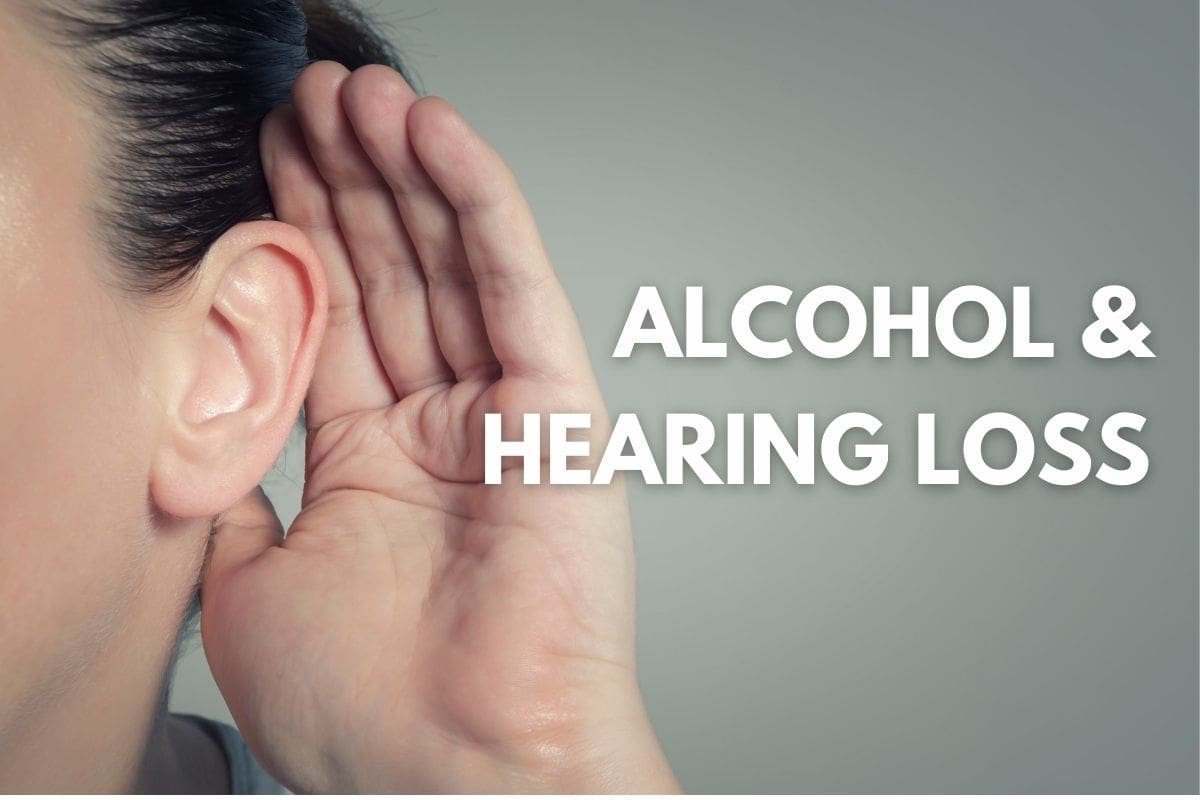It’s well known that drinking can cause balance issues and dizziness. But did you know that this is caused by alcohol’s impact on your ears rather than your brain? Yes, in case you hadn’t already heard, alcohol can wreak havoc on your hearing organs. This is why hearing loss, both temporary and permanent, is also a common risk and side effect of drinking.
These side effects of alcohol on the ears aren’t limited to alcoholics. Anyone who drinks (including infrequent binge and even moderate drinkers) can find themselves at risk of impaired hearing.
How Alcohol Can Cause Hearing Loss
Alcohol doesn’t cause physical deformities in the ear, so how can it result in hearing loss? Well, there’s a lot that goes on between picking up a sound and registering it. We tend to associate hearing as something that the ears do, but they are just one part of the intricate and multi-step process that is the ability to hear.
Your outer ears are merely a receptacle, a body part designed to be really good at capturing sound. The heavy lifting of processing that sound is facilitated by bones, hair, and of course, your brain, in a delicate baton race of transmitting sound signals for deciphering.
Drinking can affect multiple stages of this process, which can mean that alcohol causes hearing loss in several ways, and simultaneously.
Impared Auditory Processing
One way that alcohol affects hearing isn’t caused by interference with the ears themselves, but rather with the brain. Excessive consumption can shrink the auditory cortex, the part of the brain responsible for processing all the sounds you hear. This change in size directly impacts its processing power and results in hearing loss even if your ears are still perfectly functional.
Damaged Inner Ear Hair
Hair is a crucial part of the hearing process. Located in your inner ear are thousands of tiny follicles with a big job. These hairs pick up auditory information (a.k.a. sound) via vibrations and then translate them into nerve impulses that your brain (the auditory cortex) can process as speech, music, etc.
Alcohol pools in the inner ear and remains there longer than it does the rest of the body. This can create a toxic environment that effectively kills these important hairs. This condition is known as ototoxicity. Once these hair cells are damaged, they’re gone for good. Inner ear hair doesn’t regenerate and can result in hearing loss at specific frequencies.
Tinnitus
Having one-too-many could leave your head ringing—literally. Tinnitus is a symptom of hearing damage that can result in noise (often described as ringing, buzzing, clicking, or hissing) without an external source being heard in one or both ears. The tell-tale “sound” of tinnitus is actually an illusion. The true source is neural circuits in our brain, the things that interpret the sounds our ears pick up.
It’s unclear why they generate these phantom noises, but what is known is that there is a correlation between tinnitus and blood pressure. Increased blood flow means greater pressure in the inner ear which can result in that seemingly sourceless sound. Drinking alcohol is well known to impact blood pressure, and as such, alcohol can temporarily induce this annoying symptom. Additionally, the bodily stress of going through alcohol withdrawal can also cause this change in blood pressure, resulting in what’s known as alcohol withdrawal tinnitus.
Is Alcohol-Induced Hearing Loss Reversible?
It’s a tricky answer. In most cases, alcohol hearing loss is temporary. However, over time the damage can become increasingly worse and to a point where it persists even after a drinking episode. Sometime’s the hearing loss caused by drinking can be reversed, sometimes not. It largely depends on the way that the hearing loss was incurred. The degree of the recovered hearing ability can vary as well, meaning that your hearing might get better but never fully recover.
Take, for instance, brain shrinkage of the auditory cortex. This shrinkage often reverses itself once drinkers stop drinking, which normally, would allow the individual to regain at least some hearing. However, if other parts of the process have sustained hearing loss, they can undermine any recovered hearing ability by the unshrunk brain. When there’s damage to any part of the hearing process, fewer auditory signals are transmitted. Over time, the brain becomes less efficient at processing sounds and shrinkage can occur again. As such, chronic alcohol abuse will likely lead to some degree of permanent hearing loss.
If you’ve experienced any of these symptoms, the best way to minimize the potential long-term damage to your hearing is to stop drinking as soon as possible. While beneficial in the long run, this can be dangerous to undergo detox by yourself if you’re a chronic and heavy drinker. A medical detox program can help you withdraw from alcohol safely and with minimized discomfort. Learn more about this and other alcohol addiction treatment options today.

































